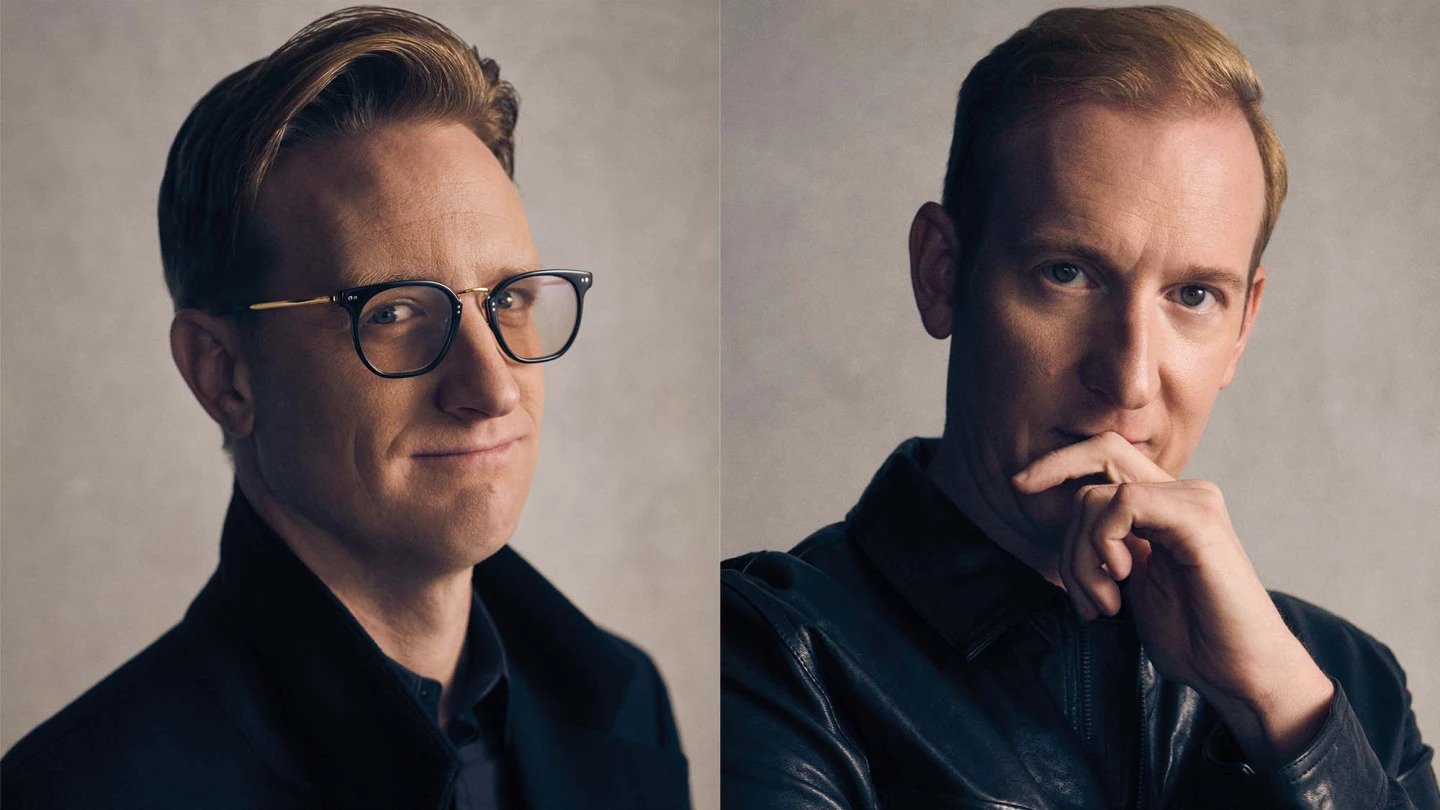
The ‘The Rings of Power’ Showrunners Discuss Backlash, Sauron, and Season 2
Two first-time showrunners who landed TV’s biggest series give THR a behind-the-scenes tour as they navigate challenges even scarier than Mordor — from “patently evil” online trolling to massive industry expectations.
“This is where it all happens,” showrunner Patrick McKay adds. “The Battle Room.”
The centerpiece of the big, windowless room is a long conference table, but your gaze is drawn to what’s covering the walls. You’re surrounded by concept art for The Lord of the Rings: The Rings of Power season two set pieces. McKay and J.D. Payne, showrunners, walk through the sequences. They intend to include more iconic locales, well-known Middle-earth people, and a big two-episode conflict. This is definitely top-secret information — no media has been let on the set of the fantasy show, let alone this area. However, the showrunners wanted to give the audience a behind-the-scenes look at what it’s like to run the biggest TV show ever produced.

Since Amazon’s billion-dollar high fantasy launched Sept. 2, The Rings of Power has been blessed with strong critical acclaim (84 percent positive on Rotten Tomatoes) and dragged by online fan bashing (its audience score is 39 percent — which includes an unknown degree of “review bombing” at the hands of internet trolls). The show’s Nielsen viewership is formidable — its first two episodes were seen by roughly 12.6 million U.S. viewers across its first four days.
But, given that this is Lord of the Rings, the standard is ridiculously high. Nobody understands the stakes more than Payne and McKay. They’re two first-time showrunners who embarked on an unexpected journey nearly five years ago to make their J.R.R. Tolkien passion project and have now found themselves “on the fault line of the culture war,” as McKay puts it, with everyone from armies of anonymous Tolkien fans to the world’s two richest men weighing in. When Elon Musk is slamming you on Twitter, it’s hard to concentrate on writing screenplays and overseeing a cast and crew of 1,300 on the most intricate TV production ever.
“Some of what’s been hardest to hear is the cynical point of view that this is a cash grab,” McKay says. “It’s like, oh my God, the opposite. This is the most earnest production. This is not a paycheck job for anybody. This is a labor of love.”
The call from the lawyers came into Amazon on a Friday in 2017: The Tolkien estate was going to entertain proposals for a Lord of the Rings show. Prime Video, along with every other entertainment company, was looking for “the next Game of Thrones.” Amazon’s founder and chairman, Jeff Bezos, was a longtime Tolkien fan. Going after The Lord of the Rings was a no-brainer, and an internal “fellowship” was assembled to figure out how to beat other prospective bidders.
According to sources, HBO sold the estate on recounting the “Third Age” of Middle-earth — effectively duplicating Peter Jackson’s beloved Lord of the Rings trilogy, which made $3 billion and won 17 Oscars. The estate had issues with Jackson’s adaptations (the late Christopher Tolkien, the author’s son, felt they “eviscerated” the works), but it wasn’t interested in going down the same path again. Netflix proposed numerous shows, including a Gandalf series and an Aragorn drama. “They tried the Marvel approach,” one source close to the negotiations claimed, “and that really frightened out the estate.”
Amazon’s negotiating team (headed by Sharon Tal Yguado, Roy Price, and Dan Scharf) courted the estate not with a specific proposal, but with the promise of a tight partnership that would provide the estate with the creative seat at the table so it could protect Tolkien’s legacy. There was also, of course, the money. Sources say the staggering number that’s been widely reported ($250 million) was actually Netflix’s bid and that Amazon’s number was tens of millions less (albeit, still staggering).
“It was our collective passion and fidelity to Tolkien that really won the day,” says Amazon Studios TV co-head Vernon Sanders (who came on board in 2018 as part of an executive shakeup that included Price being ousted for a misconduct claim, Jen Salke joining as Amazon Studios chief and Albert Cheng installed as TV Co-Head).
Now that the production has recovered from the pandemic, future episodes will most likely be released much faster than the first batch. Nonetheless, McKay says they plan to work on season 2 for “another several years.” The first season famously cost $700 million (including rights), and subsequent seasons are likely to cost far less.
Given that the master plan of their program is for the rings to progressively corrupt the leadership of mankind, elves, and dwarfs, I momentarily wonder if the storyline risks making their saga a bit of a letdown as the entire land collapses into enslavement and anarchy.
“That’s the secret sauce of Tolkien right there,” Payne explains, leaning forward. “The grimmer things get, the more those pops of light have a contrast to bounce off of. That’s what’s beautiful about Tolkien. Even in points of complete despair, you can have two halflings look at each other and say, ‘I’m glad you’re here with me.’”
The showrunners famously start every day in the writer’s room with a Tolkien quote. As they blaze forward and try to level up their series amid outsized expectations, there’s one that seems appropriate. As it so happens, it’s the same quote Payne recites when asked which is his favorite. You can read the detailed version of the interaction with Payne and McKay in the Oct. 5 issue of The Hollywood Reporter magazine.
